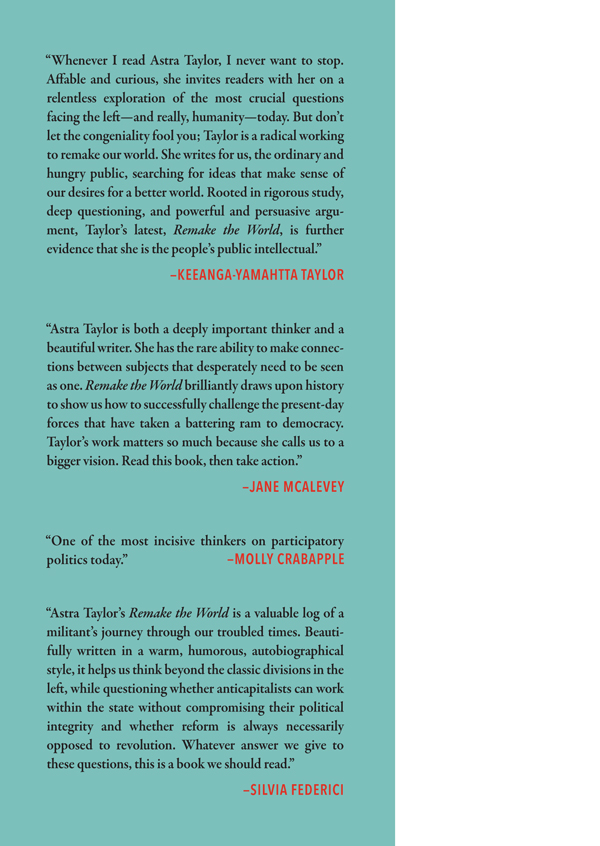

Whenever I read Astra Taylor, I never want to stop. Affable and curious, she invites readers with her on a relentless exploration of the most crucial questions facing the leftand really, humanitytoday. But dont let the congeniality fool you; Taylor is a radical working to remake our world. She writes for us, the ordinary and hungry public, searching for ideas that make sense of our desires for a better world. Rooted in rigorous study, deep questioning, and powerful and persuasive argument, Taylors latest, Remake the World, is further evidence that she is the peoples public intellectual.
Keeanga-Yamahtta Taylor
Astra Taylor has been remaking the world with her powerful thought and prophetic action for years. This wide-ranging book is a courageous and visionary embodiment of her deep commitment to fundamental transformation!
Cornel West
Astra Taylors Remake the World is a valuable log of a militants journey through our troubled times. Beautifully written in a warm, humorous, autobiographical style, it helps us think beyond the classic divisions in the left, while questioning whether anticapitalists can work within the state without compromising their political integrity and whether reform is always necessarily opposed to revolution. Whatever answer we give to these questions, this is a book we should read.
Silvia Federici
Astra Taylors crystalline writing is on full display in this collection of penetrating and profound essays, curated and necessary for these troubled times.
Roxanne Dunbar-Ortiz
Astra Taylor is a rare public intellectual, utterly committed to asking humanitys most profound questions yet entirely devoid of pretensions and compulsively readable.
Naomi Klein
One of the most incisive thinkers on participatory politics today.
Molly Crabapple
Astra Taylor is both a deeply important thinker and a beautiful writer. She has the rare ability to make connections between subjects that desperately need to be seen as one. Remake the World brilliantly draws upon history to show us how to successfully challenge the present-day forces that have taken a battering ram to democracy. Taylors work matters so much because she calls us to a bigger vision. Read this book, then take action.
Jane McAlevey
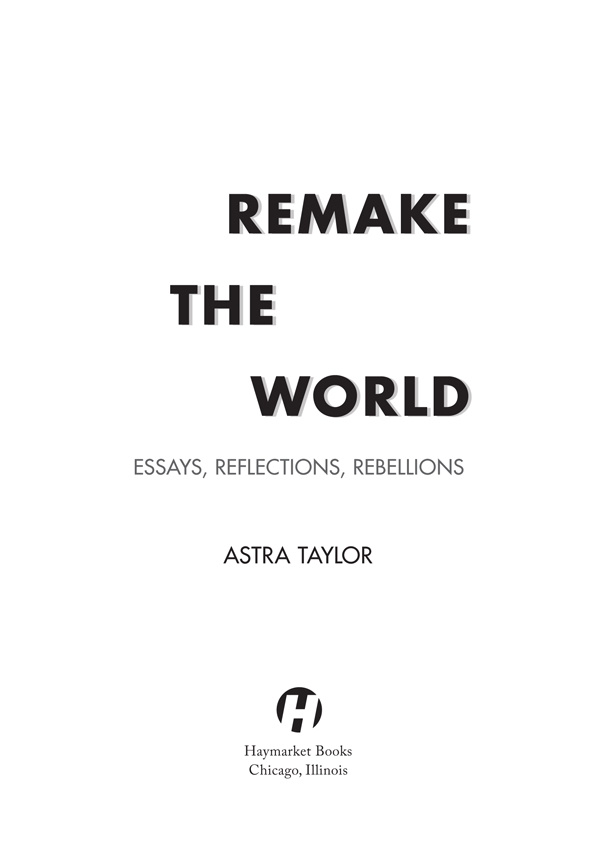
2021 Astra Taylor
Published in 2021 by
Haymarket Books
P.O. Box 180165
Chicago, IL 60618
773-583-7884
www.haymarketbooks.org
ISBN: 978-1-64259-475-1
Distributed to the trade in the US through Consortium Book Sales and Distribution (www.cbsd.com) and internationally through Ingram Publisher Services International (www.ingramcontent.com).
This book was published with the generous support of Lannan Foundation and Wallace Action Fund.
Special discounts are available for bulk purchases by organizations and institutions. Please email for more information.
Cover design by Tara Nye Taylor.
Library of Congress Cataloging-in-Publication data is available.

For my father, Ethan Taylor,
who taught me to keep trying
1
BREATHING TOGETHER
I ts as natural as breathing is a clich because, when all is going well, nothing else is more effortless than inhaling and exhaling, something we do approximately twenty thousand times a day. Typically, most of us dont think much about it. We breathe as we sleep, breathe as we eat, breathe as we move, and breathe as we talk. But that changed in 2020. We worried about our lungs and gasped for air. A novel illness sickened millions and tanked the global economy, thousands ingested tear gas protesting police violence, and cities were smothered by plumes of dark, noxious smoke from nearby forest fires.
During the first tense few weeks of the Covid-19 shutdown, we thought we could stop the spread of the disease by washing our hands. Our hands were something we could control. We could keep them in our pockets, wear latex gloves, have sanitizer at the ready, and scrub off the pathogen with soap and hot water. We didnt have all the facts. The coronavirus, as US authorities knew by early February, is airborne, transmitted through invisible particles and droplets emitted and ingested during the most automatic of physical acts. The pandemic has revealed that our bodies function more like sponges than fortresses, my sister, the disability rights activist and scholar Sunaura Taylor, observed. In a variety of visualizations, we see our bodies extending beyond their usual bounds: graphics of our coughs, sneezes, and even breath show how far beyond our own skin our bodies reach; the six-foot rule of social distancing a daily acknowledgement that our bodies not only leak and ooze, but that they absorb the conditions of others. Epidemiology and physics colluded to prove that even at a seemingly safe distance, we touch by virtue of breathing the same air.
In the worst cases, Covid-19 causes acute respiratory distress. Experts describe succumbing to the disease as akin to drowning. Early in the outbreak I read a piece by a doctor attempting to educate readers about how our lungs operate and what contracting the illness might entail. A healthy lung is so soft, she wrote, it has almost no substance; touching it feels like reaching into a bowl of whipped cream. Covid changes that, filling the twin organs with a yellow goo that blocks the free flow of oxygen: The lung texture changes, beginning to feel more like a marshmallow than whipped cream. To be soft and permeable like a sponge is to be healthy. To be rigid and closed off, fortresslike, spells doom. This is true, it turns out, not just for our lungs but also for our very selves.
When we breathe, we pull air into our windpipe, or trachea. That pipe than splits into our lungs two main airways, called bronchi, which then branch off into smaller and smaller passageways, leading to tiny twig-like tubes called bronchioles that culminate in clusters of microscopic sacs called alveoli. In medical diagrams these passageways resemble the branches of an upside-down tree, as though every human being contains a piece of an inverted forest inside their chest. Its a fitting image, because if it werent for trees, we wouldnt be able to breathe. By photosynthesizing, plants generate carbohydrates and oxygen in equal measure, nourishing our bellies and filling our lungs. Without them wed starve, but not before we choked on lethal levels of carbon dioxide. In this sense, the thousands of fires that raged across North America in 2020, burning more than eight million acres, charred the lungs of the earth.
In those months, some communities gagged on smoke, others on pepper spray. On May 25, forty-six-year-old George Floyd was asphyxiated by Derek Chauvin, a Minneapolis police offer who kneeled on Floyds neck for eight minutes and forty-six seconds with an expression of untouchable, detached superiority. Floyds alleged transgression was using a counterfeit twenty-dollar bill. The assault was caught on video, and perhaps because the pandemic had slowed things down, people paid attention. Floyds murder galvanized the biggest protest movement in US history, attracting up to twenty-six million participants by midsummer. Police and federal agents responded with unrelenting force, blinding over a dozen eyes with rubber bullets and burning thousands of peoples lungs with chemical weapons, including smoke grenades. In Portland, Oregon, residents used leaf blowers for self-defense, redirecting fumes away from innocent crowds and back toward the cops. Floyds last words echoed Eric Garner, who, as he was killed by police in New York City in 2014, uttered a phrase that would become a common chant at Black Lives Matter protests: I cant breathe. In streets full of tear gas, demonstrators couldnt breathe either.
Next page
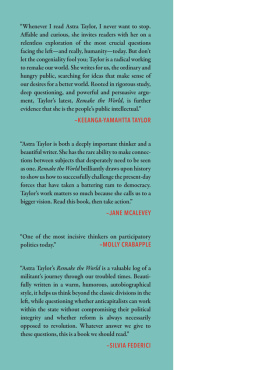

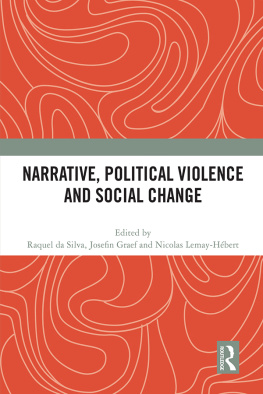

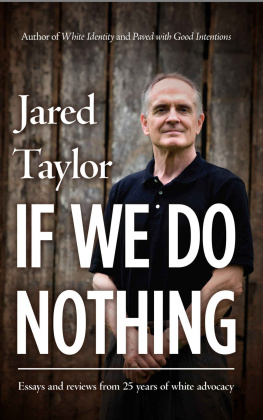
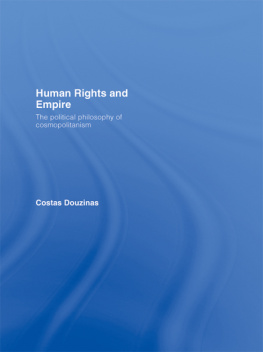
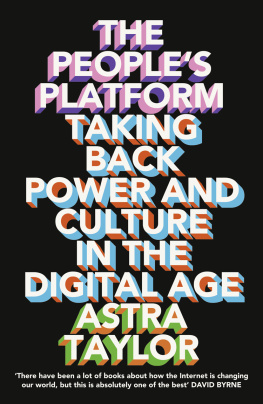
![T.L. Taylor [T.L. Taylor] - Watch Me Play](/uploads/posts/book/131712/thumbs/t-l-taylor-t-l-taylor-watch-me-play.jpg)




